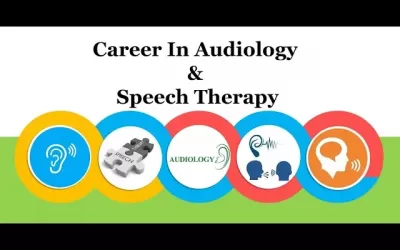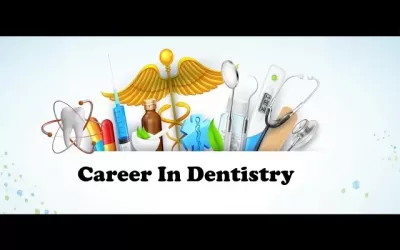
Ms. Mugdha Shetye and Ms. Chandani Kapoor have spoken about popular careers in Health Sciences. Health science is a broader term and includes Medicine, Allopathy, Ayurveda, and Homeopathy as well as Paramedical options like Physiotherapy, Speech Therapy, and Radiology.
Pursuing medicine as a career option is a good idea. All these put together are the options available for students in the health science stream. There is a lot of scope in paramedical courses also. The paramedical experts and doctors work hand in hand to treat the patients.
Pursuing Medicine As a Career
Paramedical courses can be a little less stressful as there are no emergencies to attend like the doctors would need to. But both the medicine and paramedical professionals have a lot of challenges in their work life.
There are a few other options like research, and insurance which also students can consider as their career options in the health science field. While choosing medicine field students need to keep in mind their emotional and physical strengths. There is great scope in the field of health science.
Frequently Asked Questions (FAQs) About Medicine as a Career
1. What is a career in medicine all about?
A career in medicine involves diagnosing, treating, and preventing illnesses in patients. Medical professionals, such as doctors and surgeons, work to promote health and well-being, often through clinical practice, research, and patient care.
2. What are the different paths within the medical field?
The medical field offers various paths, including becoming a medical doctor (MD), surgeon, specialist, researcher, medical educator, healthcare administrator, or working in medical technology and innovation.
3. How long does it take to become a doctor?
The path to becoming a doctor typically involves completing a Bachelor’s degree (4 years), followed by medical school (4 years), and then residency training (varying durations depending on specialization), totaling around 10-15 years of education and training.
4. What is medical school like?
Medical school involves intensive study of anatomy, physiology, pharmacology, and clinical skills. It also includes hands-on experience through clinical rotations, where students interact with patients under the guidance of experienced doctors.
5. Do I need to specialize after medical school?
Specialization is optional, but many doctors choose to pursue it. Specializations include areas like surgery, internal medicine, pediatrics, cardiology, radiology, and more. Specializing requires additional training called a residency or fellowship.
6. What skills are important for a medical career?
Medical professionals need strong communication, empathy, critical thinking, problem-solving, and decision-making skills. They must also have a solid foundation in science and the ability to work well under pressure.
7. Is a medical career financially rewarding?
Medical careers are often financially rewarding due to the years of education and training required. However, the actual income can vary based on factors like specialization, location, healthcare system, and experience.
8. How competitive is medical school admissions?
Medical school admissions are highly competitive due to the limited number of available spots. Strong academic performance, relevant extracurricular activities, letters of recommendation, and a competitive Medical College Admission Test (MCAT) score are important.
9. Is the medical field only about treating patients?
The medical field extends beyond patient care. Professionals can engage in medical research, teach at medical schools, contribute to healthcare policy, work in medical technology, or even pursue careers in medical writing and communication.
10. What are the challenges of a medical career?
Medical careers come with long hours, high levels of responsibility, and emotional demands due to dealing with patients’ health and well-being. Balancing personal life and the demands of the profession can be challenging.
11. Is a medical career emotionally demanding?
Yes, medical professionals often encounter emotionally challenging situations, such as delivering difficult diagnoses or dealing with patient suffering. Developing emotional resilience and coping strategies is important.
12. Can I have a work-life balance as a medical professional?
Achieving work-life balance in medicine can be challenging, especially during training and early career stages. However, with proper time management and support systems, it’s possible to find a balance that works for you.
13. How do I stay updated with advancements in the medical field?
Continuing medical education (CME) is essential to stay updated. Many medical associations offer conferences, workshops, and online resources. Journals and research publications also provide insights into the latest advancements.
14. What are the ethical considerations in the medical field?
Ethical considerations are central to medicine, including patient confidentiality, informed consent, and making morally sound decisions. Medical professionals must adhere to codes of ethics and prioritize patient well-being.
15. How can I explore if a medical career is right for me?
Volunteering or shadowing at hospitals, clinics, or medical facilities can provide firsthand exposure to the medical field. Talking to practicing doctors, medical students, and career counselors can also help you understand the profession better.
A career in medicine can be both rewarding and demanding. It’s important to thoroughly research the field, understand its challenges and opportunities, and make an informed decision based on your passion and dedication to improving healthcare and well-being.






